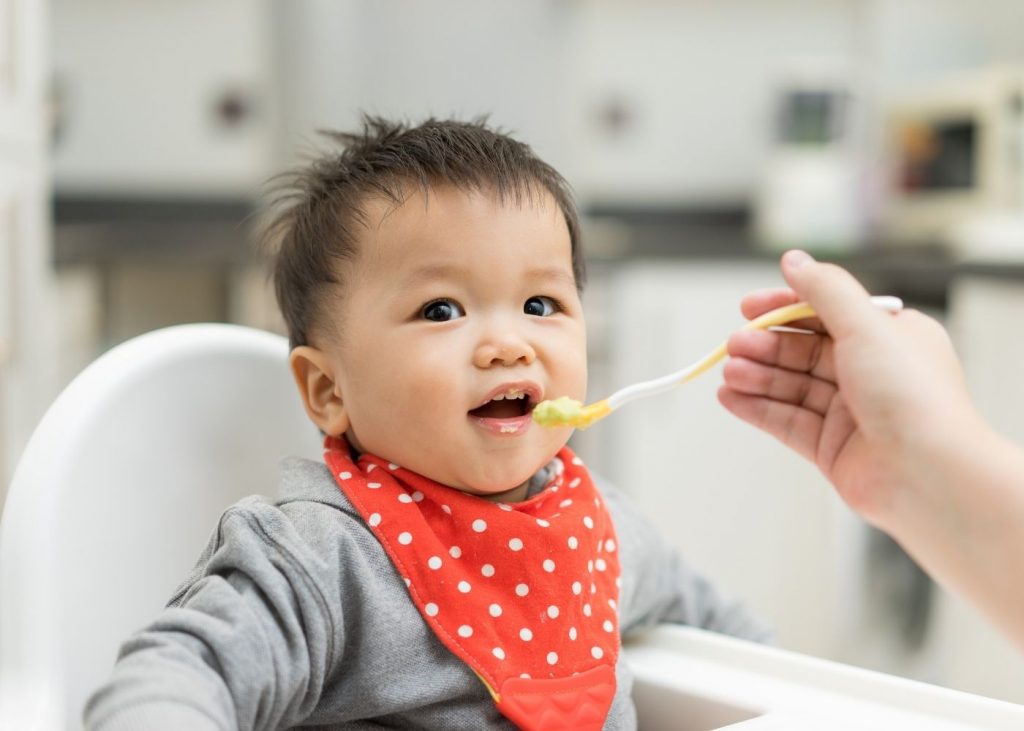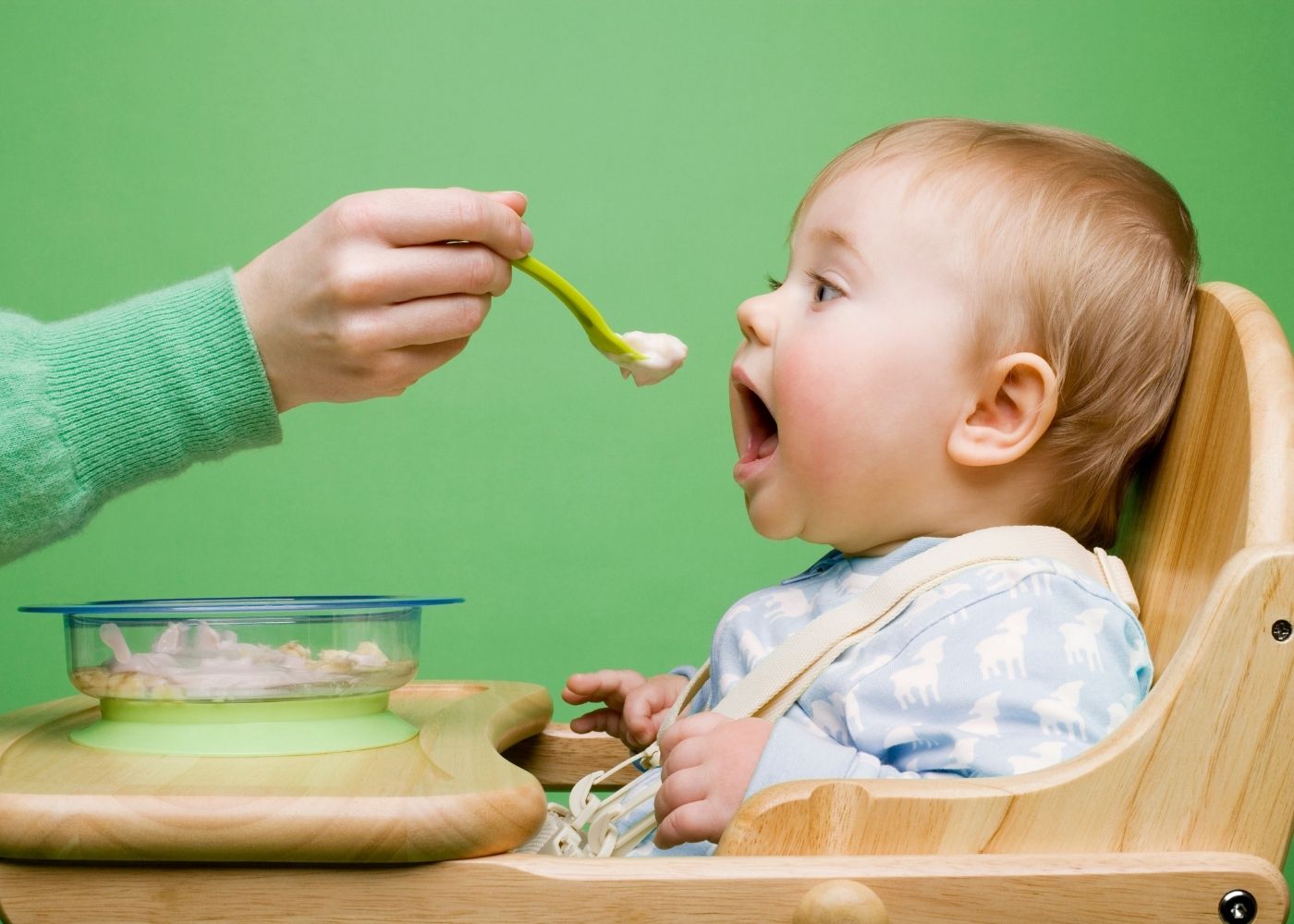One of the most common questions I get as a pregnancy naturopath is whether it’s okay to feed your baby solid food and, if so, when? There’s so much information out there, and often it differs – making it confusing for new families when they’re trying to figure out what to do.
As babies grow, they need solid foods to get more iron and other essential nutrients for development and growth. Before the first six months, babies use iron stored in their bodies from when they were in the womb, and from breastmilk or formula. Eating solids also develop their teeth and jaws and enhances the movement skills they’ll later need for talking.
How will you know when your baby is ready for solid foods?
A great rule of thumb to figure this out is to check that they can do the following:
- Your baby can sit up on their own and have good head and neck control
- They don’t push solids out of their mouth with their tongue straight away
- They enjoy chewing solid foods and show an interest in what’s on your plate
- They are starting to pincer grasp (this just means picking things up with their thumb and forefinger)
It’s not recommended to feed your baby solids before four months old, and if they haven’t eaten solids by seven months, speak to a health professional.
Did you know that your baby is more likely to try solid foods after a feed of formula or breastmilk? It’s also easier when you and your baby are relaxed.

What’s the right age to feed your baby solids?
Organisations like UNICEF and the World Health Organization recommend delaying feeding your baby solids until they’re six months old.
The benefits of waiting until after your baby is six months old include:
- You’ll be giving your baby’s digestive system a chance to mature
- Increased protection from illness
- Reduce the risk of future obesity
- Reduced risk of iron-deficiency-anaemia
What food should you feed to your baby first?
Some people say that it’s okay to feed your baby a little bit of everything that you eat. As a pregnancy naturopath, I recommend offering a new food every few days so that you can keep an eye on potential allergic reactions. That way, if you notice rashes, diarrhea, or vomiting, you can more easily pinpoint an allergy and what caused it.
The most important thing to note is that your baby should eat foods rich in iron, Vitamin D, and Zinc to encourage healthy development.
- Iron is crucial for brain development and can reduce your baby’s risk of anaemia. Tofu, beans, dark leafy greens, eggs, and fatty fish are great sources of iron. Pairing these with foods that are high in Vitamin C can help with iron absorption.
- Zinc, which can be found in red meat, whole grains and beans, will help your baby develop a strong immune system and healthy reproductive organs.
Try feeding your baby 1-2 teaspoons of food at first and increase according to their appetite. By 12 months old, they should be eating three small meals a day along with their milk feed. It’s good to start with soft, mashed, and smooth food – depending on what they like.
What should you never feed your baby?
Never feed your baby honey or any food containing honey until they’re at least twelve months old. It’s also important to avoid foods with added sugar, processed foods, juices and whole milk. Be careful with foods like grapes, nuts and seeds, which can become choking hazards.
Will your baby’s poop change when they start eating solids?
Yes! Your baby’s poop will become smellier, firmer and could become less frequent than before (depending on what they eat). Remember that diarrhea can be the first sign of an allergy so make note of what food they ate before that nappy change.
Need advice?
As a Melbourne pregnancy naturopath, I help women and families all over Victoria – whether in person or via Telehealth online. Wondering what to feed your newborn? Confused about whether they’ve had an allergic reaction or not? Get in touch for tailored advice and recommendations from a qualified pregnancy naturopath.
